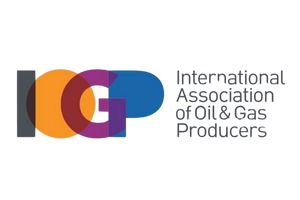The International Association of Oil & Gas Producers (IOGP) is a leading global industry association representing companies and associations engaged in the exploration and production of oil and natural gas. Established to promote safe, responsible, and sustainable practices, IOGP operates globally with offices in London, Brussels, and Houston, and represents members producing over a third of the world’s oil and gas. At the EU level, IOGP Europe focuses on supporting and contributing to the EU’s objective of climate neutrality by 2050, advocating for a technology-inclusive policy framework that balances climate goals with economic growth, job creation, and competitiveness.
IOGP actively engages with key EU policy areas including the Energy Union, Clean Energy for All Europeans package, the Green Deal, Offshore Safety Directive, Marine Strategy Framework Directive, Emissions Trading System (ETS), Blue Growth, Best Available Techniques Reference Documents (BREFs), Hydrocarbon Guidance, Hydrogen Strategy, Methane Strategy, Zero Pollution Plan, and sustainable finance taxonomy. The association participates in various EU consultative groups such as the European Offshore Advisory Group, Gas Coordination Group, Madrid European Gas Regulatory Forum, and several environmental and marine expert groups. It acts as the primary interlocutor for energy policy, environmental, and other industry-related issues within the EU institutions.
IOGP’s stance on climate policy is nuanced: while it supports the EU’s climate neutrality target and carbon pricing mechanisms, it often advocates for a continued role for fossil gas in the energy mix and has taken critical positions against certain climate regulations, such as the EU Methane Regulation and Industrial Emissions Directive reforms. The association also actively engages in sustainable finance policy, pushing for more lenient regulatory approaches towards oil and gas, including advocating for the inclusion of natural gas in the EU taxonomy.
IOGP’s mission includes representing industry interests to international regulators, fostering cooperation on health, safety, environment, engineering, and operations, and promoting corporate social responsibility. It provides tools and frameworks, such as the Energy Transition Integrated Framework, to guide upstream oil and gas organizations on decarbonization pathways.
Since its first registration with the EU Transparency Register in 2008, IOGP has demonstrated a high level of engagement with EU institutions, holding numerous meetings and consultations to influence policy development relevant to the oil and gas sector.


